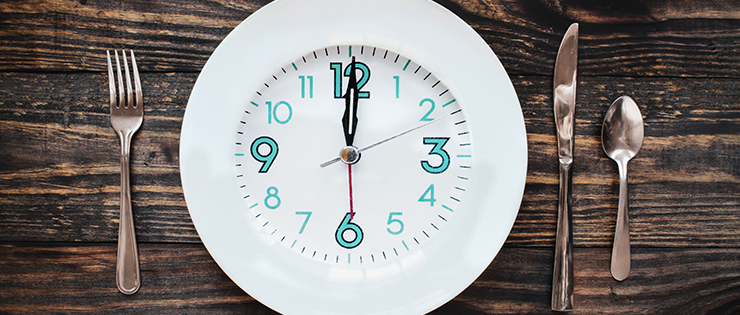
What is intermittent fasting?
Intermittent fasting is currently one of the world's most popular health and fitness trends and the wonderful news is, its not a fad. It is the practice of going without food for a set amount of time, cycling between periods of fasting and eating. I believe the reason it has got so popular is because it isn’t a diet, it’s an uncomplicated eating pattern that can be very flexible with many different lifestyles. It doesn’t specify which foods you should eat, but rather when you should eat them.
How did it start?
I’m sure many of you have actually fasted and not even known it on those mornings you are not too hungry. Fasting has been practiced for centuries, very simply when hunter-gatherers couldn’t find food, they went without. As a result, humans evolved to be able to function without food for long periods of time. Some even say fasting from time to time is more natural than always eating 3 - 4 (or more) meals per day.
How do you do it?
There are a few types of fasting method including the 5:2 and 24 hours, but I’m going to explain the 16:8 method as it’s currently the most popular. Easy to follow, you simply fast for 16 hours and your eating window is 8 hours. You could choose 11 - 7 pm if start to get hungry early or 1-9 pm is a great option if you have a dinner reservation. Now, you don’t have to intermittent fast every single day, just 3 days a week could prove beneficial and picking your busiest days early in the week is a little hack to get them done with fewer cravings getting in the way. Remember, you can drink water in abundance throughout the fast or sip on black coffee, black tea or herbal teas. Caffeine based drinks can be used beneficially to suppress hunger during the fast, but just observe your nervous system and make sure it can handle the caffeine on an empty stomach. Please don’t add sugar to these and a splash of milk may prevent you from the benefits of the full fasting experience as a carbohydrate, but you will still get some benefits.
Why should you try it?
Let’s not beat around the bush, weight loss is the most common reason for people to try intermittent fasting. All of the intermittent fasting methods should cause weight loss as you end up reducing your calorie intake, as long as you don’t binge during your eating window of course. Additionally, intermittent fasting changes hormone levels to facilitate weight loss and this increases your metabolism. The reason I like intermittent fasting as an occasional weight-loss tool is you don’t have to consciously restrict calories, so the joy of eating is still intact. Some other benefits can include improved insulin sensitivity and cell repair.
What should I eat in my eating window?
When you break the fast and begin feasting you can eat as many meals as you'd like, just notice I didn’t say as many calories as you like! We still want your meal choices to be nutritious and feeding health and not disease. I would still recommend eating a Mediterranean style diet, with a focus on eating more plant-based foods and leaving meat as a treat. By doing this you will make sure you eat from all the macronutrients, fuel yourself well, get enough fibre, load up on antioxidants and avoid processed foods as much as possible.
There is no one-size-fits-all solution when it comes to nutrition. Intermittent fasting is a great tool for some people and not others. Please always consult with a health professional to first find out if fasting is safe for you.